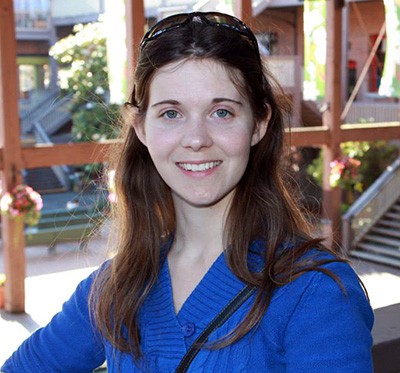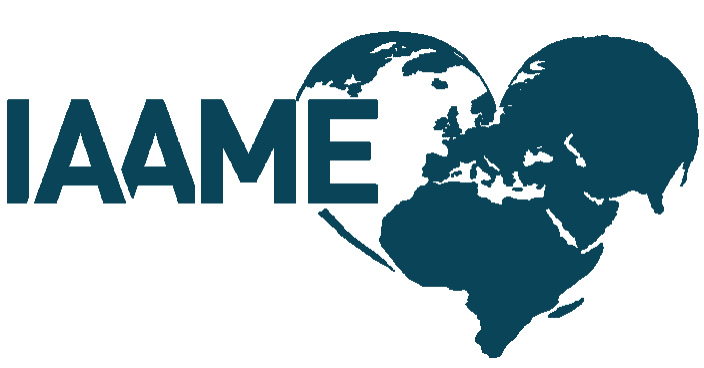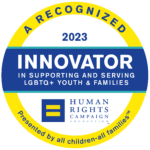Here at the Modern Family Center, our mission is to provide a community that connects with and understands you and your family. And what better way to do so than to introduce you to who we are?This month we talked to Lauren Jiang, LMSW, Program Manager about her work.
When did you start working at the Modern Family Center? I started on February 10th of 2014. I was very excited so I remember the exact day.
Why did you want to work at the Modern Family Center? I first was connected to Spence-Chapin through my second year of field placement. I was doing my Master of Social Work in the Adoption Resource Center, the then pre- and post-adoption support services at Spence-Chapin. Then the Modern Family Center was created out of ARC with this expanded mission of serving not only adopted families, but really all modern families: blended families, transracial families, single parent households, LGBTQ-headed households. So the transition was fairly seamless, having that connection to ARC leading into MFC. It made perfect sense, and the team was just incredible to work with, so I was glad to be able to stay onboard.
How did you become interested in adoption? I have been one-track career-focused for quite a while, and the gist of how I first became interested in adoption always seems a little simplistic. When I was in early middle school, my classmate’s family adopted a younger sister from China. It was kind of a first exposure. I was, at that point, a child, so it was a child’s eye-view into what is a much more complicated and multi-faceted family system. But it was my first inclination of interest, so I think at that point I started seeing adoption as something that my life would stay connected to in the long-run. And eventually that led to thinking towards careers, and a little bit more reading and researching into what are the complexities of adoption, who are the families who come to adopt, who are the kids that are placed for adoption. So it was born from that rather simplistic look, and then from there it expanded to when I was in college. I was in an organization that was called Duke China Care, which serves adoptive families. I spent some time in an orphanage in China, interned at Gladney, interned here, and here we are!
What is the most challenging part of your job? Being with families at the very beginning of the process you hear it all. I’m on a gray line; I’m the first person to talk to families that have no basis in adoption. There’s a lot of learning opportunities for those families, there’s a lot of misperceptions. There are comments that can be striking, like when a family first calls and doesn’t quite understand what openness is, and might be terrified and say, “I could never be in an open adoption.” It’s challenging when families come with kind of a script of “this is what I want, this is how I want it, this is when I want it” and helping bring them to a point where they understand the needs of kids. We’re not looking to find the ideal child for that family. Ultimately we are most interested in preparing families to meet the needs of kids.
What is the most rewarding part of your job? The nice part is that I’m on the opposite end to where I’m working with families through home studies, so helping them get some more training, learning, going into some deeper dives with them about these themes of openness, transracial families. Then later I’m with families for post-placement, once the kids are home with them, and being able to see the transition that most families make to a much more informed, child-centered approach. And I like seeing the kids home, too. Seeing them come together, seeing them understand the complexities and really examine themselves and prepare for the challenges.
Do you have interesting/funny stories about something that’s happened on the job? Well, this week my home visit overlapped with a birthday for one of the kids in the family, so we transitioned from kind of a serious dive with the parents to pizza and singing with the kids. So that was surprising.
Is there a particular family that you’ve worked with that has affected you in any way? Working with our larger families has been a really pleasant experience. I come from a traditionally smaller family; I have one sibling. But then working with a family who has ten children and is preparing for number eleven? The initial reaction is “that’s so many” or “I don’t think I could do that myself.” And you’re coming in to their home giving them a fair shot, coming to understand them, coming to see how they manage so many children of such diverse needs, and how they are preparing for another, how their kids are preparing for another, it’s seeing how they are so child-focused, and that their plan to add another child to their family will not cost any of the children in their home, and they have depth of knowledge about the community resources that will help them know the ins and outs of each of their kids: their likes, their dislikes, their behavior. I think breaking down those initial reactions of “wow, that’s a lot of kids” to knowing that they are doing it so well, and that the next child who comes into their family is coming into such a prepared, resourceful, amazing, loving family is important. I think sometimes you get faced with scenarios where you glance at it on paper and there are certainly some concerns that come to mind that you want to address at home study, and when you get there, they’ve already addressed it.
We hope you enjoyed getting to know Lauren! Make sure you catch the next Modern Family Center staff interview.






